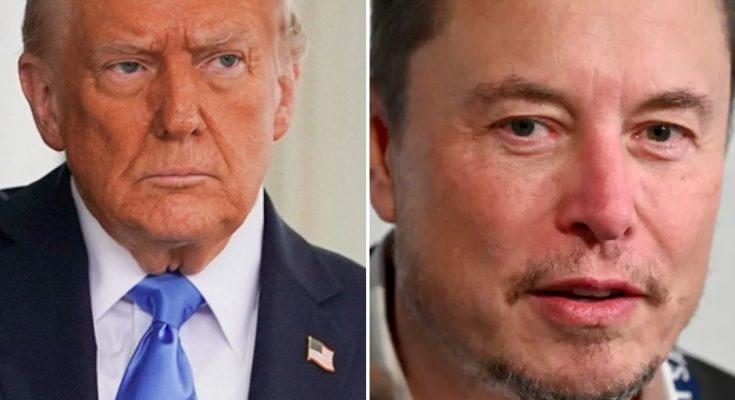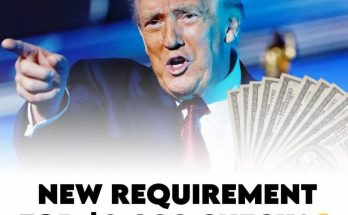Ongoing legal and regulatory challenges related to his companies have included various investigations and lawsuits that have raised concerns regarding compliance, safety, and ethical standards.
Nevertheless, during President Donald Trump’s second term, many of these legal issues began to recede. The actions of the Trump administration, which included the removal of key personnel responsible for overseeing investigations into Musk’s companies and a reduction in regulatory scrutiny, have significantly transformed the operational environment for Musk’s businesses.
Musk’s regulatory challenges were extensive and diverse, encompassing a wide array of issues from labor infractions to safety risks at Tesla and SpaceX. Notably, significant concerns emerged regarding workplace safety violations at SpaceX and the contentious autonomous driving technology of Tesla.
These matters led to inquiries from several federal agencies, including the Department of Labor, the Federal Aviation Administration, and the Consumer Financial Protection Bureau. However, as Trump commenced his second term, many of these investigations appeared to stall or be discreetly dismissed, prompting speculation about the degree to which Musk may have benefited from political backing.
A significant action taken by the Trump administration was the removal of Phyllis Fong, the inspector general at the U.S. Department of Agriculture, who was overseeing an investigation into Musk’s startup Neuralink. Neuralink, which specializes in the development of brain-machine interfaces, has been criticized for its approach to animal testing, with allegations that the company’s experiments have resulted in unnecessary animal deaths and suffering.
The termination of Fong, who was at the forefront of this investigation, was perceived by many as a clear indication that the Trump administration was prepared to interfere with regulatory agencies to safeguard Musk’s interests. The question of whether this investigation was deliberately obstructed remains unresolved, but it is evident that Musk’s enterprises experienced diminished scrutiny during this timeframe.
Likewise, in other federal agencies, measures were implemented to lessen oversight of Musk’s ventures. The Consumer Financial Protection Bureau, which had received numerous complaints regarding Tesla’s financing and leasing practices, experienced a notable reduction in personnel during Trump’s administration.
The agency, tasked with protecting consumers from financial fraud and misconduct, seemed to be less proactive in pursuing enforcement actions against Tesla. Although the agency did not publicly address the matter, the inaction on these complaints raised concerns about whether the regulatory landscape was being intentionally relaxed for Musk’s companies.
A notable regulatory achievement for Musk was the Department of Justice’s decision to dismiss a lawsuit against SpaceX, citing insufficient grounds for continuation. The lawsuit, initiated by the Department of Justice, alleged that SpaceX engaged in discriminatory hiring practices against refugee applicants.
The dismissal was interpreted as an indication of the Trump administration’s more favorable stance towards Musk’s enterprises. This decision was particularly significant given the serious nature of the allegations, which questioned the company’s hiring policies and its treatment of refugees. A clear demonstration of the Trump administration’s support for Musk was evident in the alterations to the regulatory framework that directly favored his businesses.
The Federal Aviation Administration, tasked with overseeing SpaceX’s launches, eased its regulations regarding the number of launches permitted annually. In a significant change, the FAA permitted SpaceX to conduct up to 25 launches per year of its Starship rockets, a five-fold increase from prior restrictions.
This decision was made despite apprehensions regarding the environmental consequences of these launches, which critics contend could result in heightened pollution and environmental harm.
SpaceX has encountered regulatory challenges in various countries, especially in Europe, where stringent environmental regulations govern space launches and satellite deployments. Although Musk’s enterprises have gained from the regulatory climate during the Trump administration, the future remains unpredictable.
The evolving political landscape, coupled with heightened public scrutiny, indicates that Musk will have to navigate a more intricate regulatory framework in the coming years. As his companies persist in their expansion and innovation, the appropriateness of regulatory oversight will continue to be a subject of discussion.
Currently, however, Musk’s businesses occupy a distinctive position, having benefited from the Trump administration’s regulatory policies that permitted them to operate with fewer constraints than their industry counterparts. In summary, the regulatory challenges faced by Musk’s companies during the Obama and Biden administrations have started to diminish under the Trump administration. With significant figures removed and regulatory oversight eased, Musk’s enterprises have been able to flourish in a more advantageous environment.
Although these regulatory modifications have proven advantageous for Musk, they have sparked worries regarding equity and the possibility of favoritism. As the political climate evolves, Musk’s enterprises are expected to encounter ongoing challenges;
however, they currently hold a robust position due to the regulatory framework established by the Trump administration. The lingering question is whether these benefits will endure under subsequent administrations or if they will attract increased scrutiny as public focus shifts to their operations.

